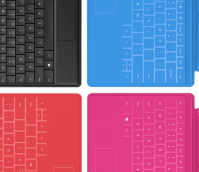Windows 8: My 'disaster' is not their 'catastrophe'

I was a guest on the "On the Verge" show last week, where the Verge crew and I talked a lot (predictably) about Windows 8.

I told the Vergers (Vergerati?) that until I saw the Microsoft Surface, I thought Windows 8 was going to be a disaster. Maybe my word choice was less than optimal, especially given two gaming honchos had said they believed Windows 8 would be a "catastrophe" for OEMs and those in the PC gaming space that same week. It seems to me like those in the "catastrophe" camp are worried about the new Windows app store and Xbox Live integration with Windows 8 possibly impacting their revenue stream, more than anything else.
I believed, and still do, that without hardware designed to simplify the use of Windows 8, Microsoft's next-gen operating system faces a rough road. (When there's a need for something like a Windows 8 Survival Guide for mouse/keyboard users, you know things are not so smooth.) And yes, this is just my opinion. I've talked to a number of others who agree. But your mileage may vary.
The reason I've been a Windows 8 doubter? Windows 8, to use Microsoft's buzzword of which I'm not particularly fond, is a "reimagined" operating system. The hardware running it needs to be reimagined, too. But the Windows 8 PCs and tablets we've seen to date have been underwhelming, in my opinion. They've either looked like dime-a-dozen, run-of-the-mill tablets or odd hybrids that seemed too clunky or weird to win over the masses.
Microsoft's just-announced Windows 8-optimized mice and keyboards with all their Start button and Charms goodness -- coming to consumers in the next few weeks or months -- should help make Windows 8 more usable by the average person. But to sell Windows 8, Microsoft needed a "hero device." And I believe Microsoft's Surface could be the ticket.
Microsoft made an operating system design choice with Windows 8: It decided to straddle the fence and offer something that company officials believed would be equally at home on PCs as on tablets. This was in keeping with Microsoft execs' claims that tablets are PCs. Until the Surface, I thought this claim was absurd.
But, if the Surface actually works as promised, Microsoft will have created a true hybrid: A pablet (or a TC, if you prefer). A tablet that is a PC and a PC that is a tablet. Yes, there are still a lot of ifs... and key among them is whether the touch and type keyboards that double as covers are ergonomically friendly and functional. But Microsoft's decision to break ranks and sell a few million Surfaces in year one could be exactly what was needed to make Windows 8 palatable.
And ... in case you missed it when Microsoft announced timing back in June, the Surface RT -- the ARM-based device that won't run existing third-party apps except remotely -- is going to be available when Windows 8 is generally available, which is October 26. Microsoft has said the Intel-based Surface Pro will be out three months after that, which puts it around the end of January 2013, if Microsoft sticks to its own timetable.
So, yes, I did use the "D" word on the Verge show. But I'm still holding out hope that the Surface, and possibly some OEM-made devices meant to compete with the Surface in a credible way, will be good enough to convince me to buy my first Windows tablet later this year.